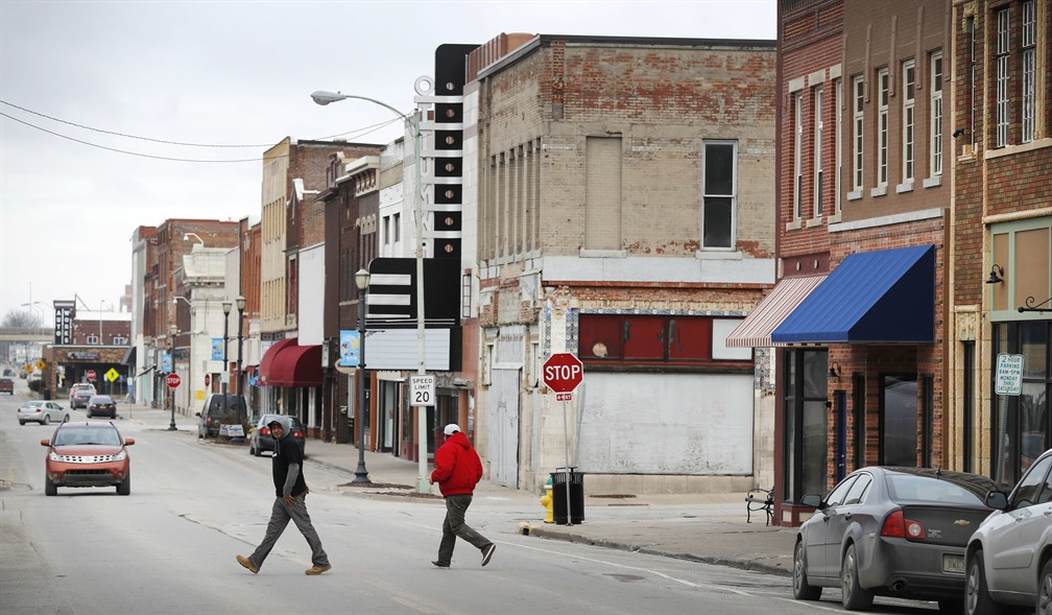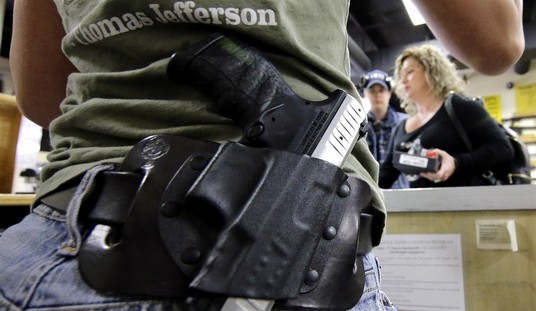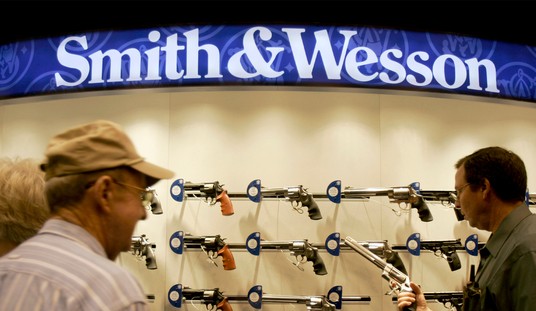Jason Aldean (and songwriters Kelley Lovelace, Neil Thrasher, Tully Kennedy, and Kurt Allison) have been living rent-free in the heads of lefty commentators for months now, and I’m sure they’re happy to be taking up that real estate. “Try That in a Small Town” was released back in July and quickly blew up into the biggest hit of Aldean’s career after progressives began clutching their collective pearls over the song’s lyrics and content, including the bit that goes:
Got a gun that my granddad gave me
They say one day they’re gonna round up
Well, that s**t might fly in the city, good luck
Try that in a small town
See how far ya make it down the road
Around here, we take care of our own
You cross that line, it won’t take long
For you to find out, I recommend you don’t
Try that in a small town
The pro-gun messaging wasn’t the only thing the Left found objectionable about the song. Singing in praise of small towns is a secular sin all its own, apparently, with
Variety‘s Chris Willman
opining that the tune “is close to being the most cynical song ever written about the implicit moral superiority of having a limited number of neighbors” and NPR’s Amanda Marie Martinez
declaring the song “builds on a lineage of anti-city songs in country music that place the rural and urban along not only a moral versus immoral binary, but an implicitly racialized one as well,” an argument that admittedly was helped along by the fact that Aldean filmed portions of the video for “Try That in a Small Town” at a Tennessee courthouse that was the site of a lynching in 1927 (something no one involved in the video’s production was aware of, according to
the producer).
Even though the song has fallen from its spot atop the Billboard Hot 100, the Left just isn’t ready to leave Aldean’s small town. Literature professor Joseph Kelly
recently declared that “Try That in a Small Town” isn’t “innocent nostalgia”, but rather an echo of a time a century ago “when the grievances of small-town America had dangerous consequences for democracy.” Kelly is desperate to tie Alderan’s hit to the horrific human rights abuses that were an inherent part of the Jim Crow South. Kelly references the lynching of 18-year-old Henry Choate at the hands of an angry white mob after he was accused of assaulting a 16-year-old girl as well as “large-scale attacks by white law enforcement officials on Black neighborhoods”.
One such attack occurred on the night of Feb. 25, 1946, near the Maury County Courthouse.
A fight between a 19-year-old Black U.S. Navy veteran and a white radio repairman eventually led to an armed standoff between police and the 3,000 Black citizens who lived in a racially segregated section of the town known as the Mink Slide district.
When four local police tried to enter the neighborhood, Black men determined to prevent another lynching fired their weapons at the white officers, leaving all of them wounded.
It didn’t take long before local police called in several dozen state police to help subdue the unrest. Armed with machine guns, white police officers shot out the windows of shops, arrested 62 Black people and charged 12 of them with the shootings of the local police officers.
“The Mink Slide area,” the local paper reported, “was cleared out.”
To add further humiliation to residents of the thriving Black community, the commander of the state police then rode through the neighborhood the next morning in an open car broadcasting through a loudspeaker, “Let me see you smile. Come on, smile.”
The next day, hundreds of deputized white men systematically searched Black homes and businesses, breaking things, looting and confiscating 300 weapons.
Here’s the thing. I live outside of a small town that’s almost equally divided on racial lines, and I have no doubt whatsoever that if our local law enforcement ever tried something like that today, they’d be met with a unified response from armed citizens both Black and White.
It’s not the 1920s anymore. It’s not the 1940s either. While racism is still sadly present, the Jim Crow system has been dismantled and the segregationists who ruled over that system would be dismayed at the results of integration; not just in terms of the law but in our social and personal relationships.
While I disagree with Kelly’s insistence that “Try That in a Small Town” is some sort of secret shoutout to the “herrenvolk,” I do appreciate his reminder of the racist roots of gun control and the fact that the State can just as easily be our oppressor as it can our protector. Still, I think Kelly would be better served by finding something new to complain about… or maybe going through his record collection to find the hidden horrible meaning inside older tunes like John Mellancamp’s “Small Town.” I’m sure if he looks hard enough he can find evidence of some sort of dog whistle or secret subtext… and if not he can just make something up as the Left’s already done with Aldean’s song.









